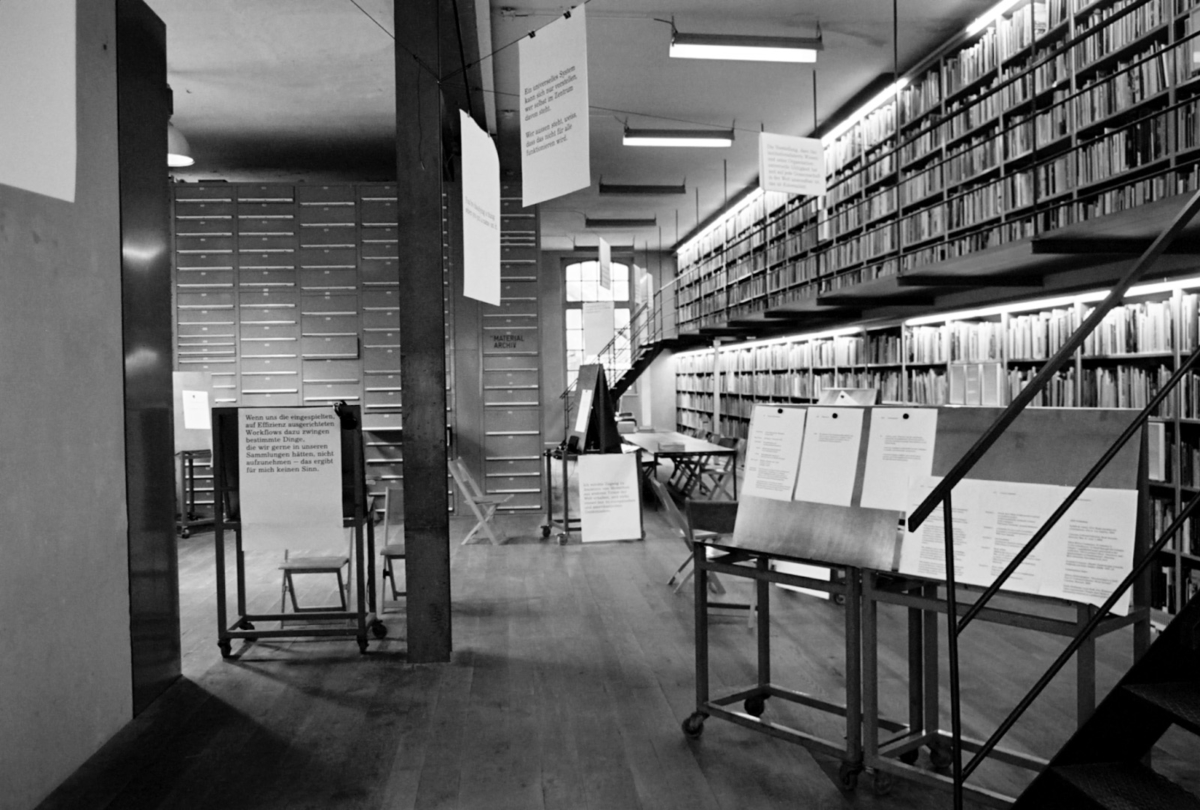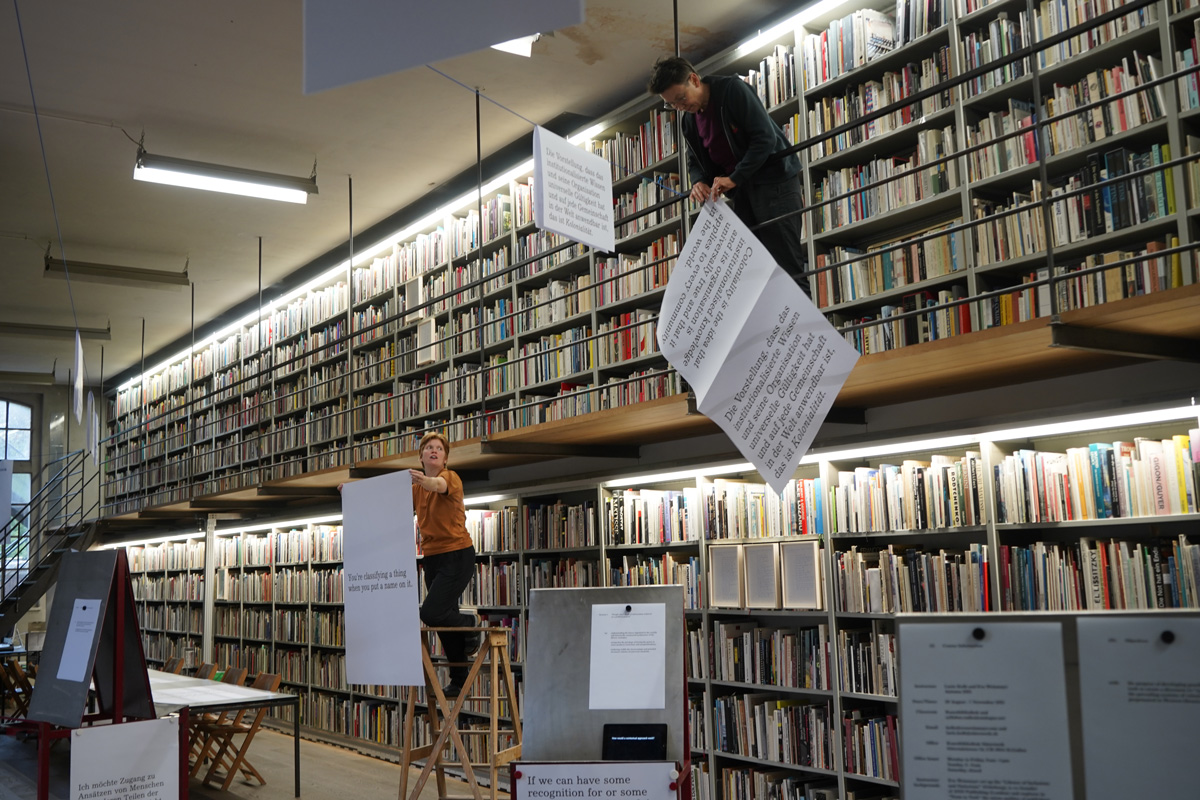The program geopolitically situates Western library systems as embedded in coloniality, addresses their claim of universality and neutrality, and investigates the resulting biases and structural oppressions and exclusions: To find certain things, it might be enough to type one word, for others we need a multitude of search terms until we find the information we are looking for. Some things cannot be found at all. Every search query, every effort to obtain information is shaped by the actions and decisions of librarians, information scientists and developers, who create the framework for our search.
Therefore, the program claims that information retrieval is not just a technical act, but a political project shaped by social, political and technical factors. Drawing on Susan Leigh Star, who claims in “The Ethnography of Infrastructure” (1999) that infrastructure only becomes visible when it is broken, the study programme explores possible intersectional interventions and experiments that expose such library infrastructure and the (hidden) mechanisms of its catalogue, so they can be critiqued.
In eight sessions, together with librarians, activists, artists, designers and programmers, the syllabus examines the library catalogue’s technological foundations and addresses the assumptions, authority, and privilege of those bodies who do the cataloguing work.
In the form of conversations and interviews, the programme explores a range of practice-based experiments and methods to intervene into these default structures. These include, for example, opening up the protocols of cataloguing (Infrastructural Manoeuvres), experimenting what intersectional search (Feminist Search Tools) and intersectional technologies (Constant) could be, as well as with the political potential of annotating and rewriting (The Rewrite, Library of Inclusions and Omissions).
Through a range of discursive formats, such as workshops, exhibitions, publications, and by connecting people and practices, the study program aims to create an awareness and an understanding of the underlying structural biases so that they can be addressed.
Research Partners
- Bibliothek Wyborada (Karin K. Bühler)
- Constant (Elodie Mugrefya, Femke Snelting)
- Emily Drabinski & Amanda Belantara
- Feminist Search Tools (Aggeliki Diakrousi, Sven Engels, Anja Groten, Annette Krauss)
- Infrastructural Manoeuvres (Anita Burato, Martino Morandi)
- Kunstbibliothek and Werkstoffarchiv Stiftung Sitterwerk (Barbara Biedermann, Roland Früh, Julia Lütolf)
- The Rewrite (Johannes Bruder, Karolina Sobecka, Solveig Suess)
- Nora Schmidt
Activities / Formats
- The syllabus in the exhibition “Reading the Library”, Sitterwerk St.Gallen
- Friendly peer review of the syllabus
- The syllabus in the issue “Der radikale Katalog” of the Fabrikzeitung
The project was originally commissioned for the exhibition “Reading the Library” (2021) at Kunstbibliothek and Werkstoffarchiv Stiftung Sitterwerk.

